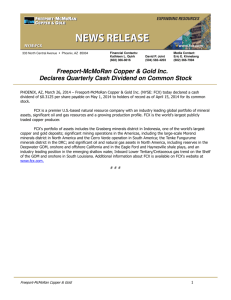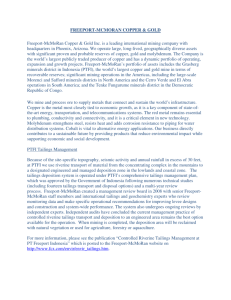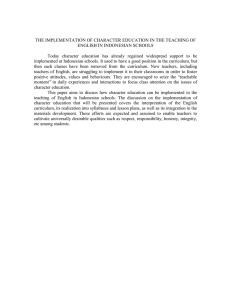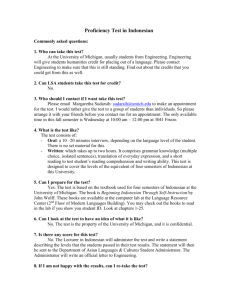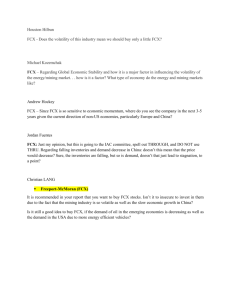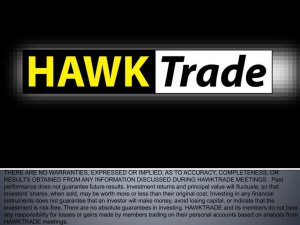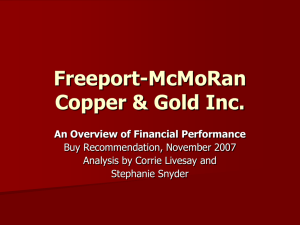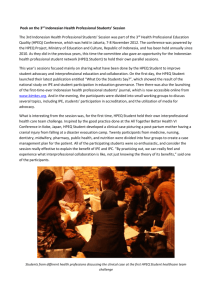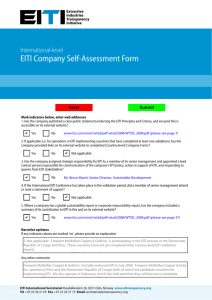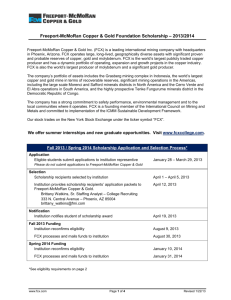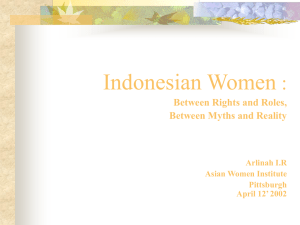Response of Freeport-McMoRan to New York Times article
advertisement
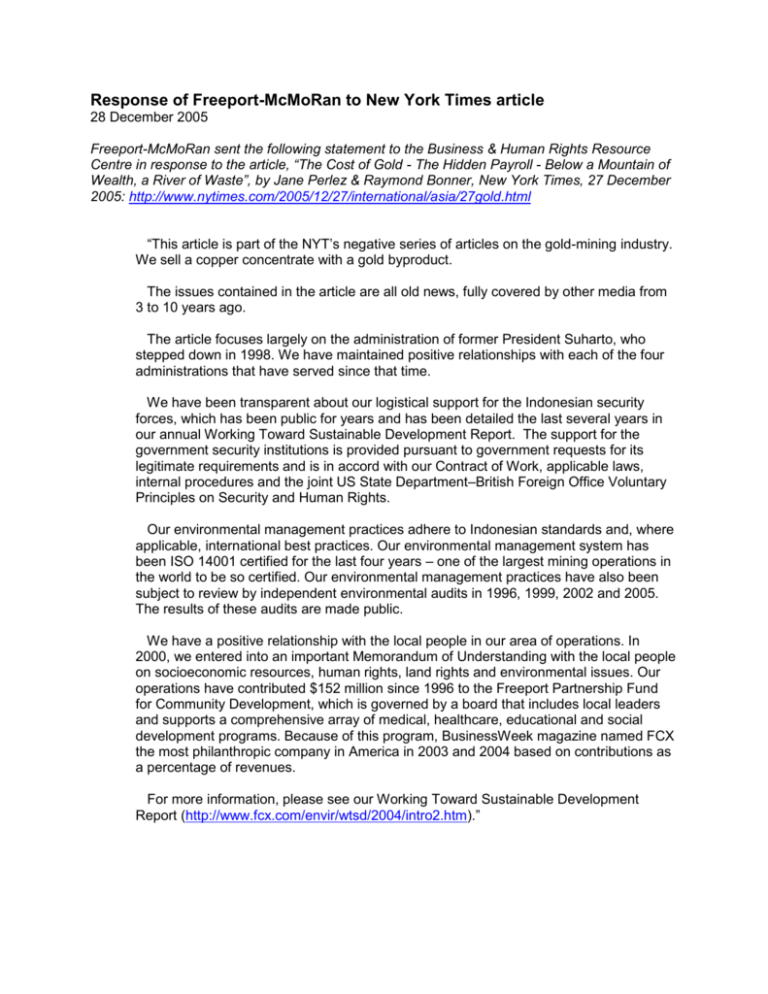
Response of Freeport-McMoRan to New York Times article 28 December 2005 Freeport-McMoRan sent the following statement to the Business & Human Rights Resource Centre in response to the article, “The Cost of Gold - The Hidden Payroll - Below a Mountain of Wealth, a River of Waste”, by Jane Perlez & Raymond Bonner, New York Times, 27 December 2005: http://www.nytimes.com/2005/12/27/international/asia/27gold.html “This article is part of the NYT’s negative series of articles on the gold-mining industry. We sell a copper concentrate with a gold byproduct. The issues contained in the article are all old news, fully covered by other media from 3 to 10 years ago. The article focuses largely on the administration of former President Suharto, who stepped down in 1998. We have maintained positive relationships with each of the four administrations that have served since that time. We have been transparent about our logistical support for the Indonesian security forces, which has been public for years and has been detailed the last several years in our annual Working Toward Sustainable Development Report. The support for the government security institutions is provided pursuant to government requests for its legitimate requirements and is in accord with our Contract of Work, applicable laws, internal procedures and the joint US State Department–British Foreign Office Voluntary Principles on Security and Human Rights. Our environmental management practices adhere to Indonesian standards and, where applicable, international best practices. Our environmental management system has been ISO 14001 certified for the last four years – one of the largest mining operations in the world to be so certified. Our environmental management practices have also been subject to review by independent environmental audits in 1996, 1999, 2002 and 2005. The results of these audits are made public. We have a positive relationship with the local people in our area of operations. In 2000, we entered into an important Memorandum of Understanding with the local people on socioeconomic resources, human rights, land rights and environmental issues. Our operations have contributed $152 million since 1996 to the Freeport Partnership Fund for Community Development, which is governed by a board that includes local leaders and supports a comprehensive array of medical, healthcare, educational and social development programs. Because of this program, BusinessWeek magazine named FCX the most philanthropic company in America in 2003 and 2004 based on contributions as a percentage of revenues. For more information, please see our Working Toward Sustainable Development Report (http://www.fcx.com/envir/wtsd/2004/intro2.htm).”
